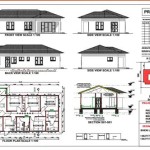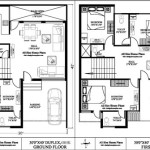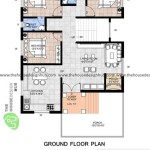Electrical Floor Plan Symbols CAD
Electrical floor plan symbols in CAD (Computer-Aided Design) are essential for creating accurate and comprehensive building designs. They represent various electrical components and fixtures, enabling clear communication among architects, engineers, electricians, and contractors. Standardized symbols ensure consistency and prevent misinterpretations during the construction process.
The use of CAD software has revolutionized how electrical plans are drafted and interpreted. Previously hand-drawn, electrical plans are now predominantly digitally created using CAD software. This allows for greater accuracy, easier modification, and seamless integration with other building systems, such as HVAC and plumbing.
A well-defined set of electrical symbols is crucial for efficient design and construction. These symbols represent devices like switches, outlets, lights, panels, and conduits, allowing stakeholders to understand the electrical layout at a glance. The use of CAD software ensures these symbols are presented clearly and consistently, further improving comprehension and collaboration.
CAD libraries provide a vast repository of standard electrical symbols compliant with industry regulations and best practices. These libraries are regularly updated to reflect changes in codes and standards, ensuring the designs remain current. Users can easily select the appropriate symbols from these libraries and insert them into their drawings, streamlining the design process.
Electrical floor plan symbols cover a wide range of components. Basic symbols represent common elements such as single-pole switches, duplex receptacles, and ceiling-mounted light fixtures. More specialized symbols denote elements like three-way switches, GFCI outlets, and emergency lighting. These symbols are differentiated by their shape and internal markings, conveying specific information about the function and characteristics of each element.
Symbol representation often includes connection lines and indications of circuit wiring. Lines represent the conduit or cable pathways, indicating how the electrical components are interconnected. These lines can be further annotated with wire gauge and circuit numbers, providing detailed information about the electrical system's wiring configuration. This level of detail is essential for accurate installation and troubleshooting.
Beyond individual components, CAD software also allows for the representation of complex electrical systems. Panel schedules, riser diagrams, and one-line diagrams can be integrated into the floor plan or linked to separate drawings. This comprehensive approach ensures a complete understanding of the electrical system design, from the main service entrance to individual branch circuits.
Standardization of electrical symbols is vital. Organizations like the National Electrical Manufacturers Association (NEMA) and the Institute of Electrical and Electronics Engineers (IEEE) contribute to developing and maintaining these standards. Adhering to these standards ensures clarity and consistency across projects and avoids potential miscommunication that can lead to errors during construction.
Using CAD software allows for customization and modification of standard symbols. While adherence to standard symbols is crucial, certain projects may require specialized equipment or unique configurations. CAD software allows users to adapt existing symbols or create new ones to accurately represent these elements, ensuring the drawings reflect the specific needs of the project.
Understanding the meaning of each symbol is crucial for all individuals involved in a project. From architects to electricians, everyone must be able to interpret the information presented in the electrical floor plans. Proper training and access to resources such as symbol legend sheets are essential for ensuring all team members can effectively use and understand the drawings.
Effective use of electrical symbols contributes significantly to the overall success of a project. Accurate and well-documented plans streamline installation, reduce errors, and facilitate future maintenance. By using standardized symbols and leveraging the capabilities of CAD software, projects can achieve greater efficiency and minimize potential complications.
The accessibility of electrical floor plans in digital format facilitates collaboration among project teams. Cloud-based platforms and file sharing systems allow multiple stakeholders to access and review the drawings simultaneously, promoting efficient communication and rapid decision-making. This streamlined workflow improves coordination and helps keep the project on schedule.
CAD software also offers features for automated calculations and analysis. Load calculations, voltage drop analysis, and circuit sizing can be performed directly within the software, reducing the need for manual calculations and improving the accuracy of the design. These features contribute to optimizing the electrical system's performance and ensuring its compliance with relevant codes and regulations.
As building information modeling (BIM) becomes more prevalent, the role of electrical floor plan symbols within the larger model becomes increasingly important. Integrated BIM models allow for a holistic view of the building, encompassing all systems and components. Electrical symbols within the BIM model contribute to clash detection, energy analysis, and facility management, further enhancing the value of accurate and detailed electrical design.
Keeping up with evolving standards and advancements in CAD software is important for maintaining best practices in electrical design. Software updates, changes in regulations, and new technologies continually reshape the field. Continuing education and professional development are crucial for staying informed and ensuring designs remain compliant and efficient.

Cad Vector Electrical Plan Symbols Library Post Digital Architecture

13 Autocad Ideas Floor Plan Symbols How To Electrical

Dwg Autocad 2d Electrical Symbols Architectures Cad For Interior Designers Finland

General Electricl Autocad Symbols Floor Plan Electrical

Dwg Autocad 2d Electrical Symbols Architectures Cad For Interior Designers

Electrical Symbols Dwg Free Cad Blocks

Electric Lighting Symbols Cad Template Dwg Templates

Free Symbols Cad Blocks Electric Plumbing

Free Electric And Plumbing Symbols Cad Design Blocks Drawings Details

Cad Electrical Symbols Preview Autocad And Blocks Interior Design Template








